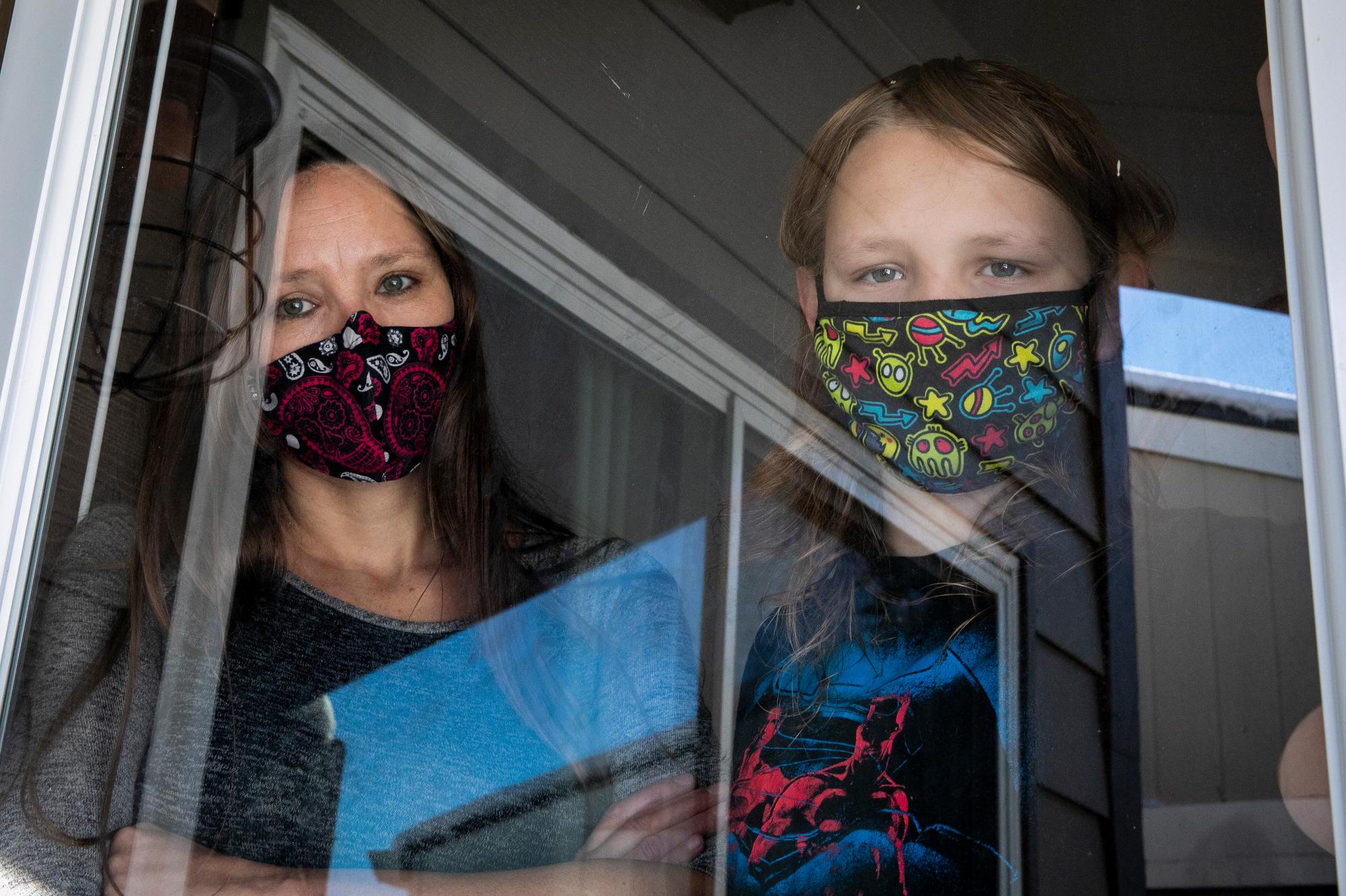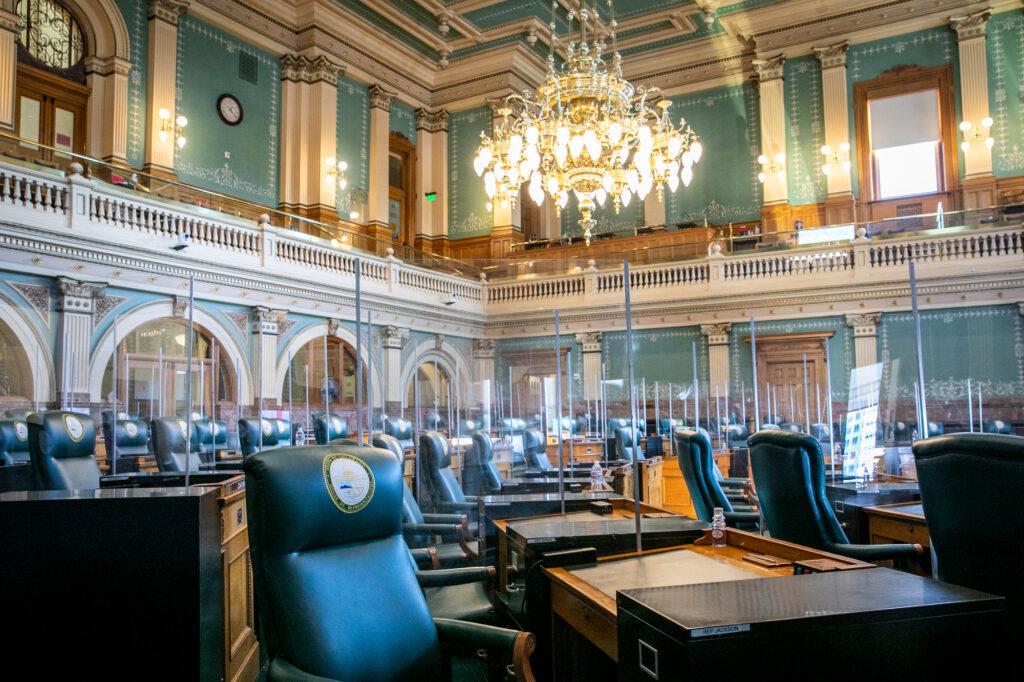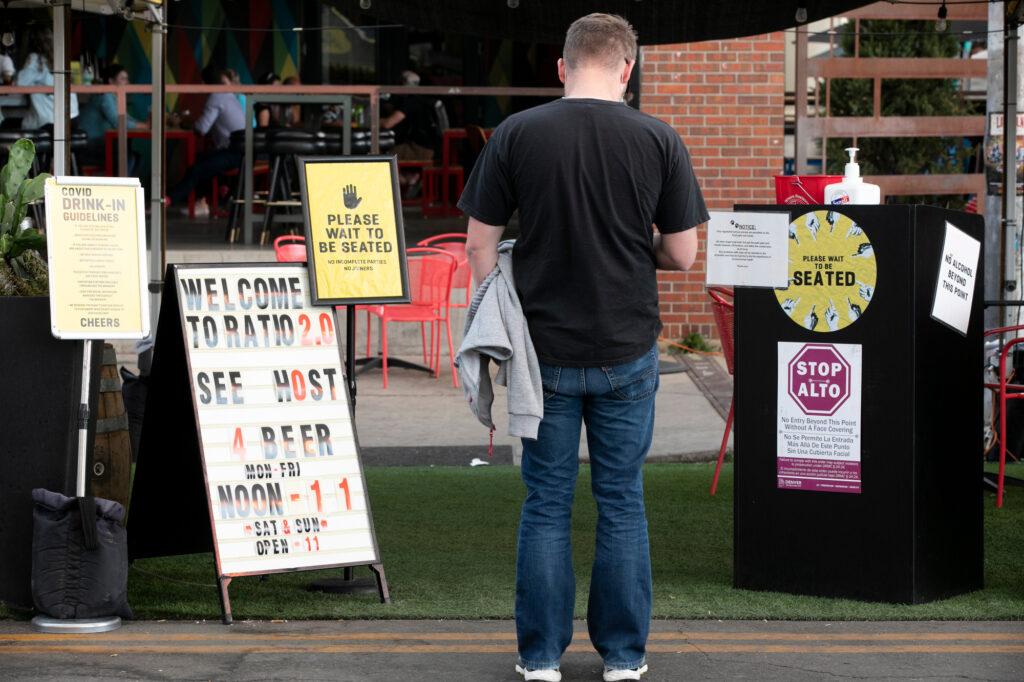
Andrea Hull thought it would be over by now.
Instead, the out-of-work bartender in Northglenn is facing the latest wave of COVID-19 with deeper dread than she’s felt at any other time in the pandemic.
“I know I’ve got some months covered, but I never thought this would go on this long,” said Hull, 40. She’s been searching for remote work so that she doesn’t endanger her 12-year-old son, who has cystic fibrosis and diabetes. Friends have been helping out, but her savings are shrinking and she’s worried about her mortgage.
“I’m starting to think ‘Will I ever get a job?’” she said. “And will it happen before the money runs out?”
It’s a conversation playing out across Colorado. At least 60,000 people, including Hull, face the expiration of unemployment benefits by the end of December. Others are bracing to lose their jobs again as climbing caseloads and new restrictions threaten to shut down retail and restaurant businesses.
And, this time, there’s no real hope that the federal government will intervene with another major stimulus package — at least for now. That means there is no longer a $600-a-week unemployment boost, no Paycheck Protection Program, no new federal aid to states and no stimulus checks in the near future.
“I’m seeing people I love and care about deeply wondering what’s going to happen,” said Carly Sargent-Knudson, a 35-year-old dance teacher in Boulder. “I’m worried. Small businesses are really struggling. Whatever funds, if any, they had from the federal government are running out.”

A special state legislative session for COVID-19 relief
Instead, Colorado state lawmakers are rushing to plug the gap with the money they have. This week, Colorado’s legislature will meet in a special session to craft a kind of miniature stimulus package worth $200 million to $400 million.
The rough plans include the following items, although the details could change:
- State sales tax relief for individual restaurants
- $100 million for the state's public health response
- $57 million in grants for small businesses that are affected by capacity restrictions
- Roughly $50 million to help pay people’s rent and mortgage bills
- About $45 million in support for childcare centers that have been marooned by the shift to remote work
- $20 million in grants to help K-12 schools provide broadband internet access to low-income families and staff
- $5 million for utilities assistance and $3 million to support food pantries
Gov. Jared Polis also asked lawmakers to work on providing assistance with utility bills, food and public health. The legislature could tackle some of that in the regular legislative session scheduled to begin in January 2021.
The money is available in part because the state’s economy is doing better than expected after the initial crash — but legislators warn that it’s not nearly enough to replace a second long-awaited federal package, which is still being debated by Congress and the incoming Biden administration.
“I think many people are expecting more than the state is capable of delivering,” said state Sen. Dominick Moreno, a member of the Joint Budget Committee. The state’s financial firepower is “nowhere near” what the federal government can do, he said.
For comparison, the federal government sent more than $2 billion in direct funding to Colorado through the CARES Act. At the peak of the federal stimulus spending, federal unemployment payments in Colorado for a single week would easily outweigh the sum that state lawmakers plan to allocate in the special session.
Still, Moreno and other state leaders say the state stimulus could help prevent deeper economic damage before federal leaders return to work in a Biden administration.
And, so far, the state plans seem to have bipartisan support.
“Senate Republicans are generally supportive of what the governor’s outlined. They stand ready to work on those issues,” said Senate Minority Leader Chris Holbert. He described the special session as a way to use unexpected revenue to benefit the state.
“We aren't deficit spending and we don't have an accumulating state debt,” he said.
Senate Majority Leader Steve Fenberg expected most of the debate to be about funding amounts, not the overall priorities.
“I think there will be some squabbles between Republicans and Democrats about little pieces and the overall numbers,” he said.
Lawmakers also will consider numerous other bills, including one from Republicans to give the legislature more power over future health emergencies, but those are generally unlikely to pass.

Business owners, workers and care providers are anxious for relief
Outside the Capitol, there’s been a range of reactions.
Amber Bilby, a home child-care provider in Arvada, said that the proposed grants to child care facilities could be crucial — depending on how the money is divvied up. Child-care professionals face higher costs and fluctuating demand, she said.
“My questions right now are on the amount, if it will really help,” she said.
Andrea Chiriboga-Flor, a leader with the worker advocacy group 9to5 Colorado, said that she agreed with the focus of the state stimulus, but wanted to see broader changes on topics like police defunding and affordable housing.
“Yes, we need to stop the bleeding, and hopefully this agenda will help with that, but we also can't afford to be short-sighted — not again,” she wrote in an email.
Paula Cole, an economist with the University of Denver, said that Polis had identified priorities that would boost vulnerable people and industries.
“I’m optimistic about the plans,” she said.
But she urged lawmakers to also focus on improving health care for lower-income people in the months ahead.
“The reality is, a large portion of our population is going to have had COVID-19, and the financial costs that come with that,” Cole said.
She's also concerned about the pandemic’s stark effects for women, who are concentrated in affected industries and who are disproportionately stepping back from work to care for children.
“The reality is we are limited in Colorado in terms of what we can do, what we can spend, because of TABOR,” Cole said. “I think in a national crisis like this, we need a national response.”
Meanwhile, workers and businesses are waiting for the help they can get. Andrea Hull plans to apply for the state’s mortgage assistance program, which is set to receive new funding in the special session.
She had only recently bought her first home, she said, and she’s not ready to give that up.
“I’ve really been struggling — suffering emotionally and mentally. Probably the only thing that keeps us going is my son,” she said.
“I hope that I don’t get into desperation and despair. Everything’s coming down, financially. I just hope that I can get a job. That’s all I want.”
Editor's note: This article was updated with new details of special session plans.









